What we're watching
Black Panther: Wakanda Forever review – say Namor
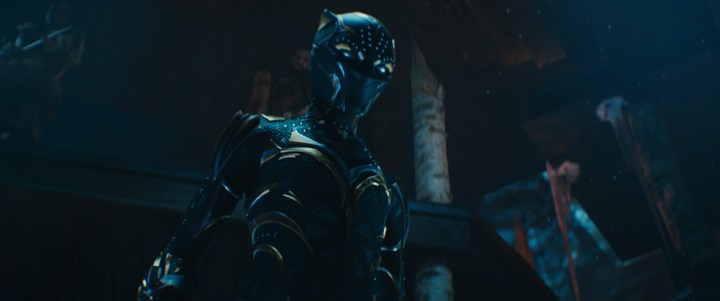
Powered by very real emotion, superlative performances and a willingness to lean into comic-book goofiness, Ryan Coogler and his sizzling cast have pulled off a miracle in producing a sequel not only worthy of its record-breaking predecessor, but also of the memory of its beloved late star.
As the many failed productions littering Hollywood can attest, crafting a sequel to a great movie is really hard. Crafting a sequel to a great movie that transcended its Hollywood comic-book blockbuster trappings to become a global cultural phenomenon, shoving a whole continent into the pop culture spotlight, much to the ululating transcendence of an entire people? That seems improbable.
However, that was the task given to writer-director Ryan Coogler after 2018’s Black Panther achieved history-making success for Marvel Studios. The improbable would soon become the impossible though as star Chadwick Boseman died suddenly from colon cancer.
An actor whose on-screen talent was only matched by his generous humanity, Boseman was widely beloved and looked primed to become the de facto new leader of the Marvel Cinematic Universe following the events of 2019’s Avengers: Endgame, leaving his death the following year to feel like a particularly unfair twist. As millions of fans grieved along with his loved ones and friends, the decision was made to not recast Boseman’s role as King T’Challa aka the Black Panther, but instead, tell a new story that honoured a man who many felt to be every bit as heroic in real life as his on-screen character. It’s a proposition that seemed to surpass impossibility and edge into lunacy… and yet, somehow, they pulled it off.
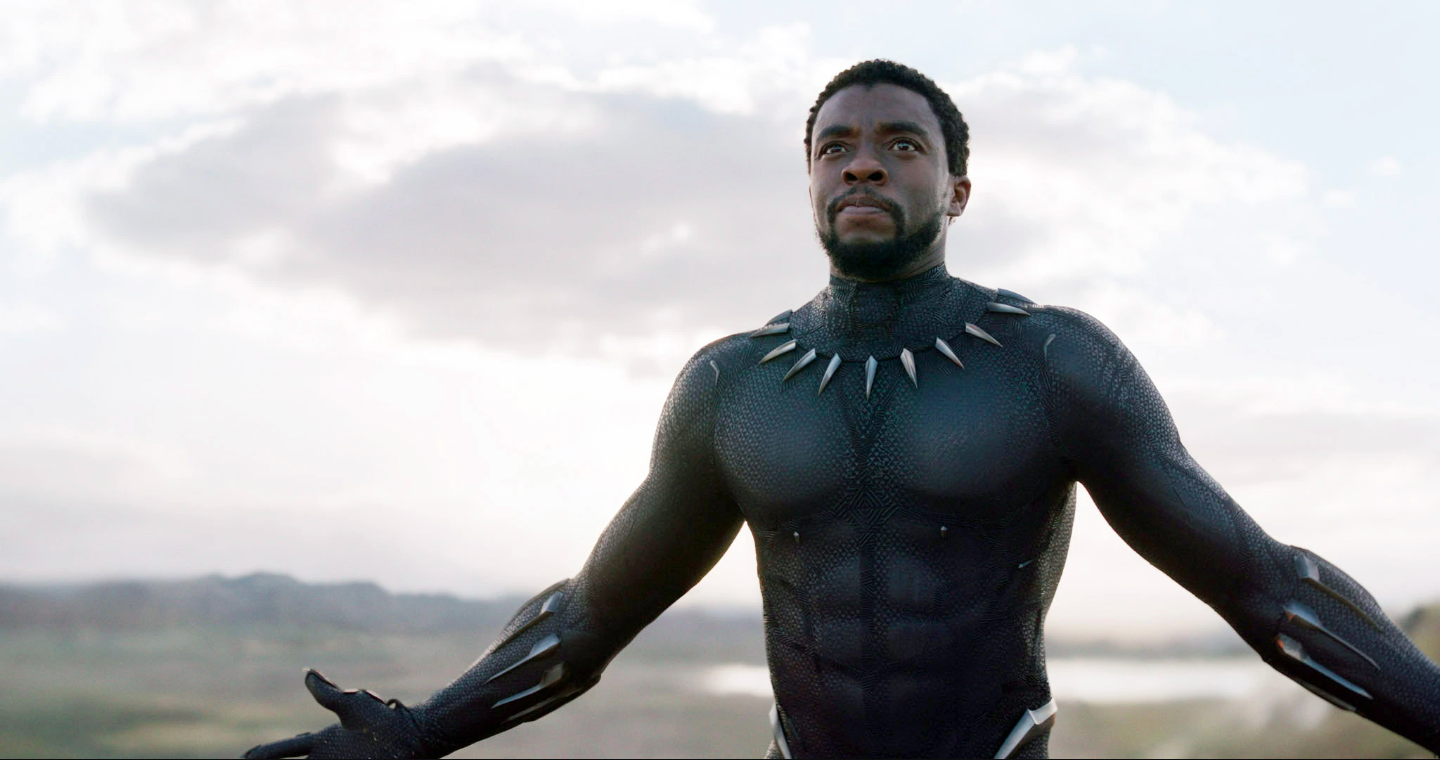
Chadwick Boseman as the Black Panther. Image: Courtesy of Marvel
Black Panther: Wakanda Forever is not a movie without fault, but given the nigh-unprecedented challenges it faced, not to mention the unenviable task of being the capstone to the MCU’s divisive Phase 4, it’s hard to deny its soaring successes.
The primary engine providing that stratospheric thrust, in this case, is Coogler’s use of the movie as a cathartic eulogy to his friend and former star. From its very first opening scene, Wakanda Forever leans into the emotion of Boseman’s passing unflinchingly, without it ever feeling exploitative. How would his death be depicted on-screen? CGI, repurposed footage, body doubles? In the end, the solution Coogler comes up with is every bit as simple and respectful as it is effective.
And affective. By the time a tweaked Marvel Studios logo fanfare plays on screen, just a few minutes into the film, this writer’s eyes had already begun to moisten noticeably. And while there are great moments of levity throughout (balanced exponentially better with the emotional gravitas than recent Marvel efforts), that moisture would get considerably worse in the film’s final moments, including a very un-Marvel post-credits scene that is sure to set audiences bawling.
A lot of that has to do with the cast, who are all on their A-game. As Princess Shuri, the breakout character of the first film, Letitia Wright leads, but Angela Bassett, Danai Gurira and Lupita Nyong’o, as Queen Ramonda, General Okoye and Nakia, respectively, also stand out. The line between acting and reality is blurred several times here, as they mine the depths of their own very real loss to deliver searing performances. Some of these are arguably the most powerful moments in the entirety of the MCU, without a single superpower in sight.
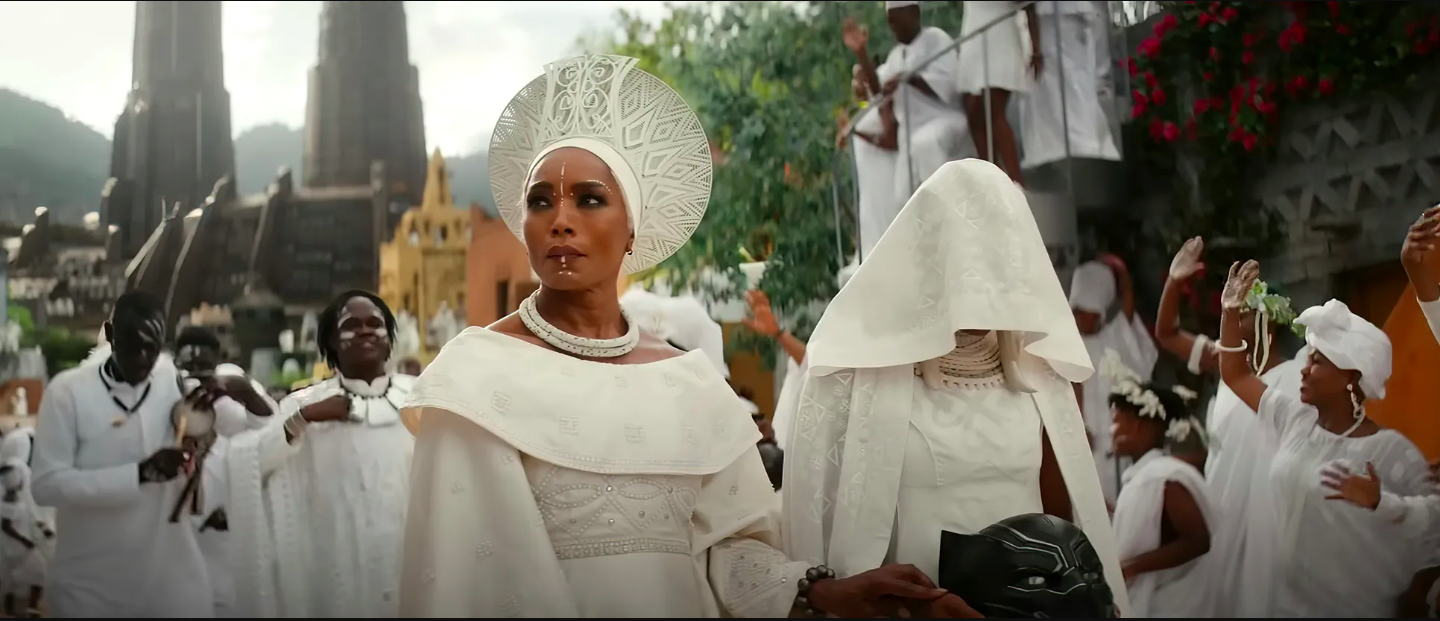
King T’Challa’s funeral in ‘Black Panther: Wakanda Forever’. Image: Courtesy of Marvel
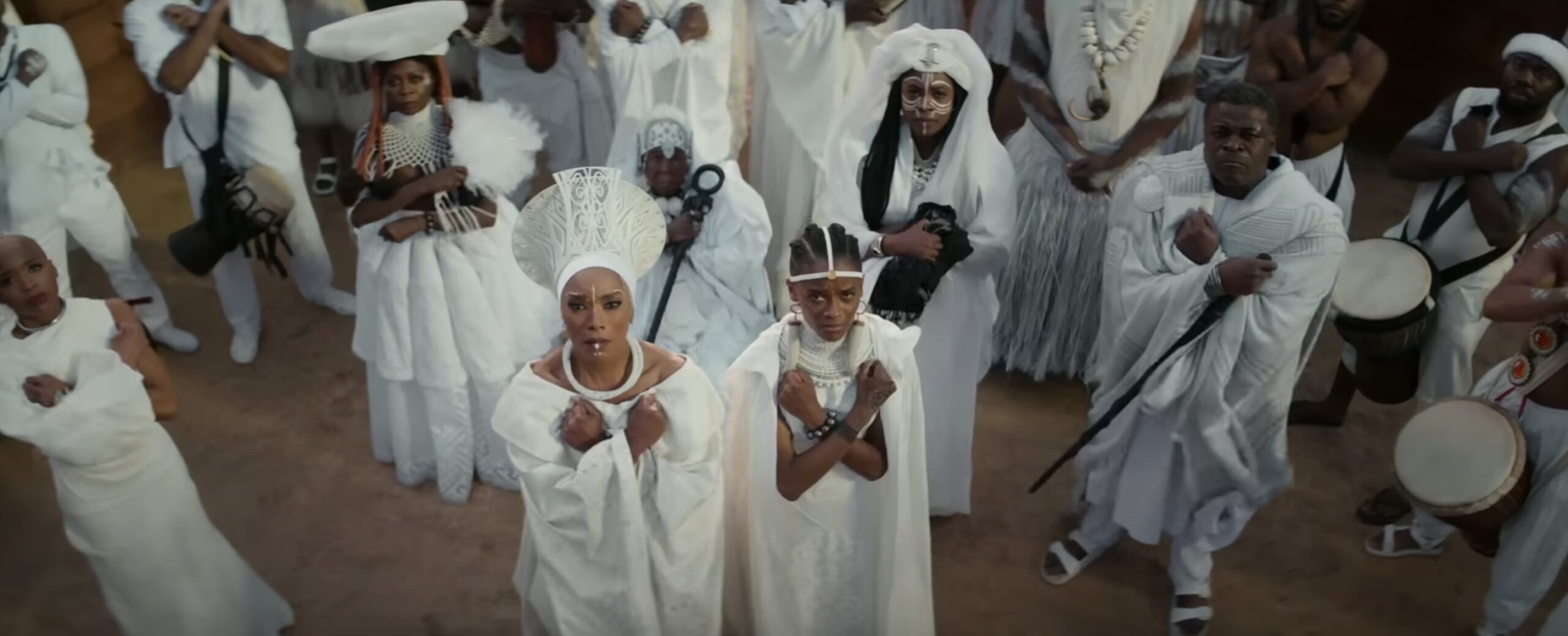
King T’Challa’s funeral in ‘Black Panther: Wakanda Forever’. Image: Courtesy of Marvel
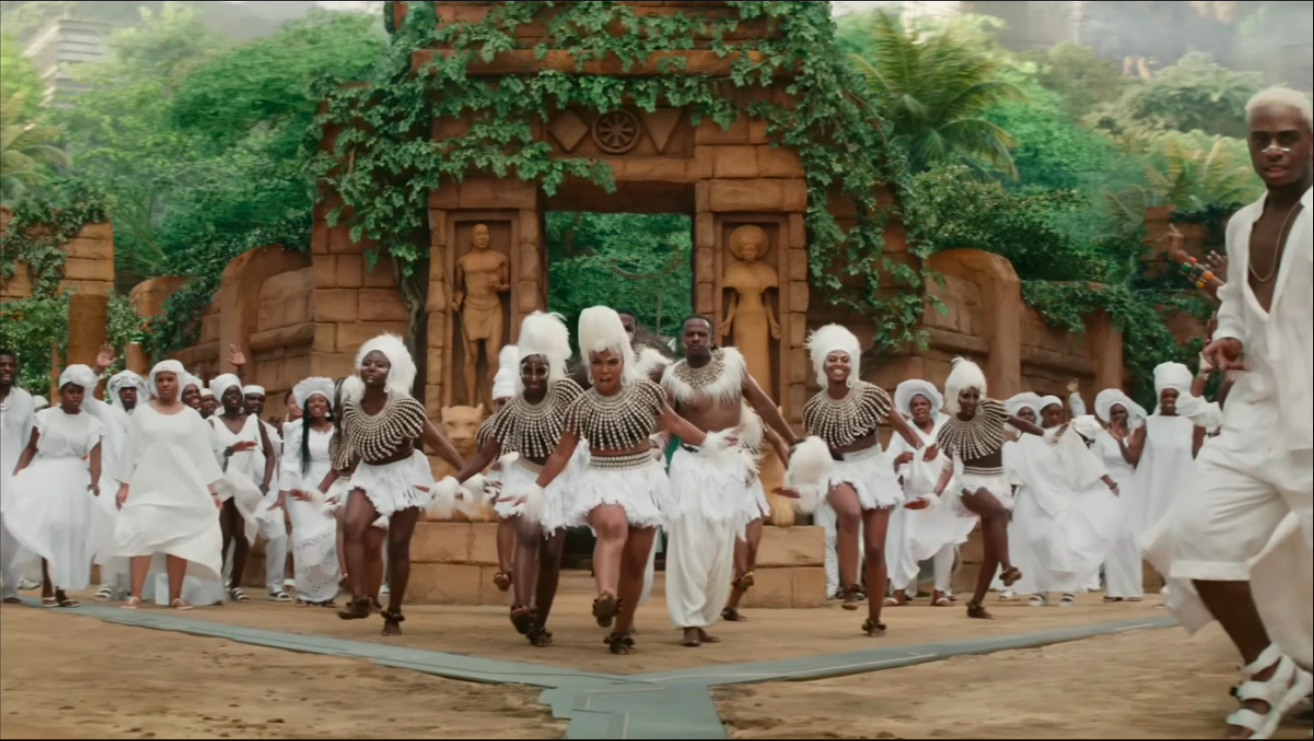
King T’Challa’s funeral in ‘Black Panther: Wakanda Forever’. Image: Courtesy of Marvel
That sizzling level of emotion runs throughout the film, even when the script is not directly dealing with T’Challa’s death. And there is definitely a lot more to deal with here: Shuri is struggling to move past her brother’s death, the roil of emotions inside her threatening to turn dark right as her people need her to step up. Meanwhile, Queen Ramonda, now ruler again, has to deal with the unintended geopolitical consequences of her late son’s royal decree to have Wakanda finally step out from behind its vibranium-powered camouflage and onto the world stage.
What begins with just other countries’ greedy scramble for Wakanda’s omni-powerful metal, inadvertently leads to contact with Talokan, another highly advanced society that has remained hidden from the rest of the world for centuries. Unlike Wakanda, this Mesoamerican kingdom – situated in the depths of the oceans, with a blue-skinned warrior mer-people all possessed of superhuman strength and endurance – prefer to remain hidden. And their leader, Namor, is willing to drown the world to ensure that.
Revered more as a god than a king, Namor is unique among his people in appearance and abilities, including pointed ears and ankle wings that grant him flight. That’s a level of comic-book goofiness that would historically have been a very hard sell, but as the antihero, Mexican actor Tenoch Huerta is a revelation. While engaging with Shuri or Ramonda, he is effortlessly charming, with an affability that is undeniable. Yet, when the moment calls for it, he manages to also exude palpable, powerful dread, even when hovering in the air in nothing but green shorts, his winged feet a-flittering. When he finally cuts loose, one can fully understand why his people deify him – and why his addition to the MCU is so exciting.
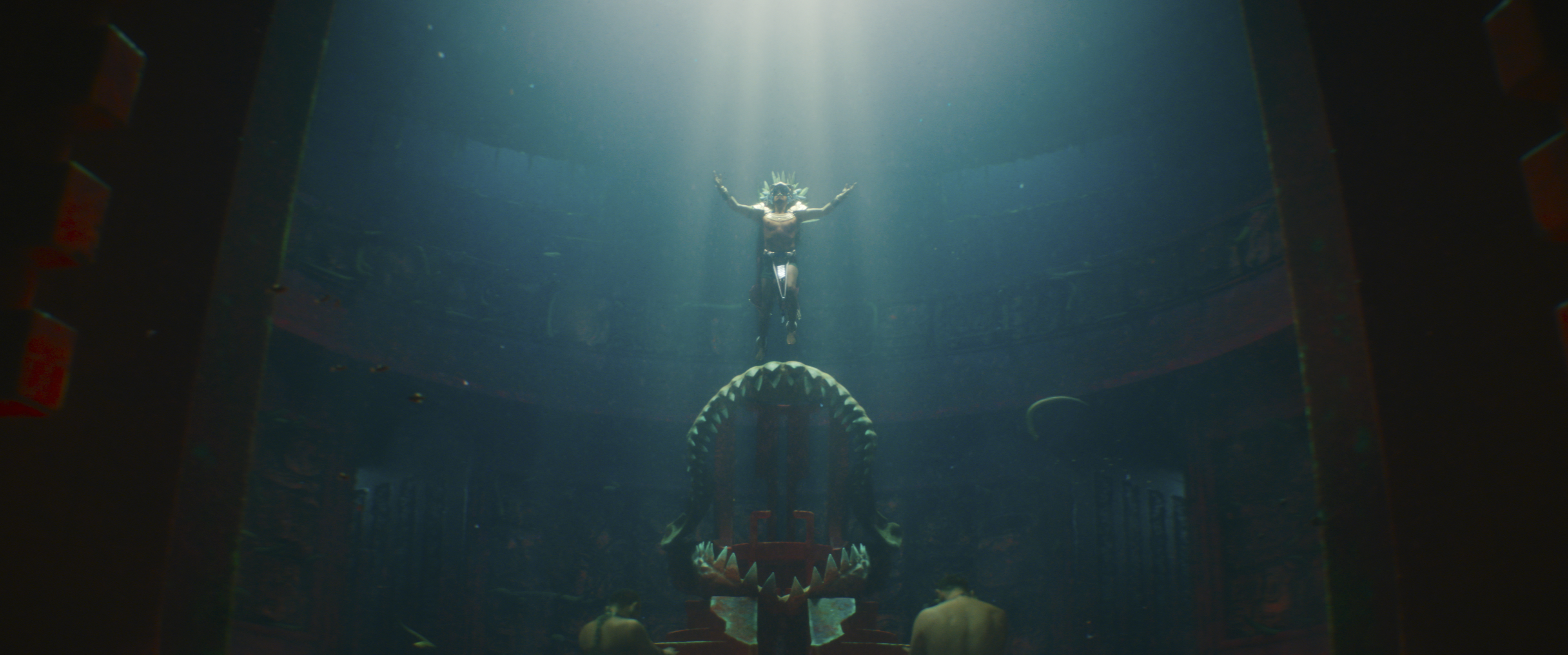
Tenoch Huerta Mejía as Namor in Marvel Studios’ ‘Black Panther: Wakanda Forever’. Image: courtesy of Marvel Studios.
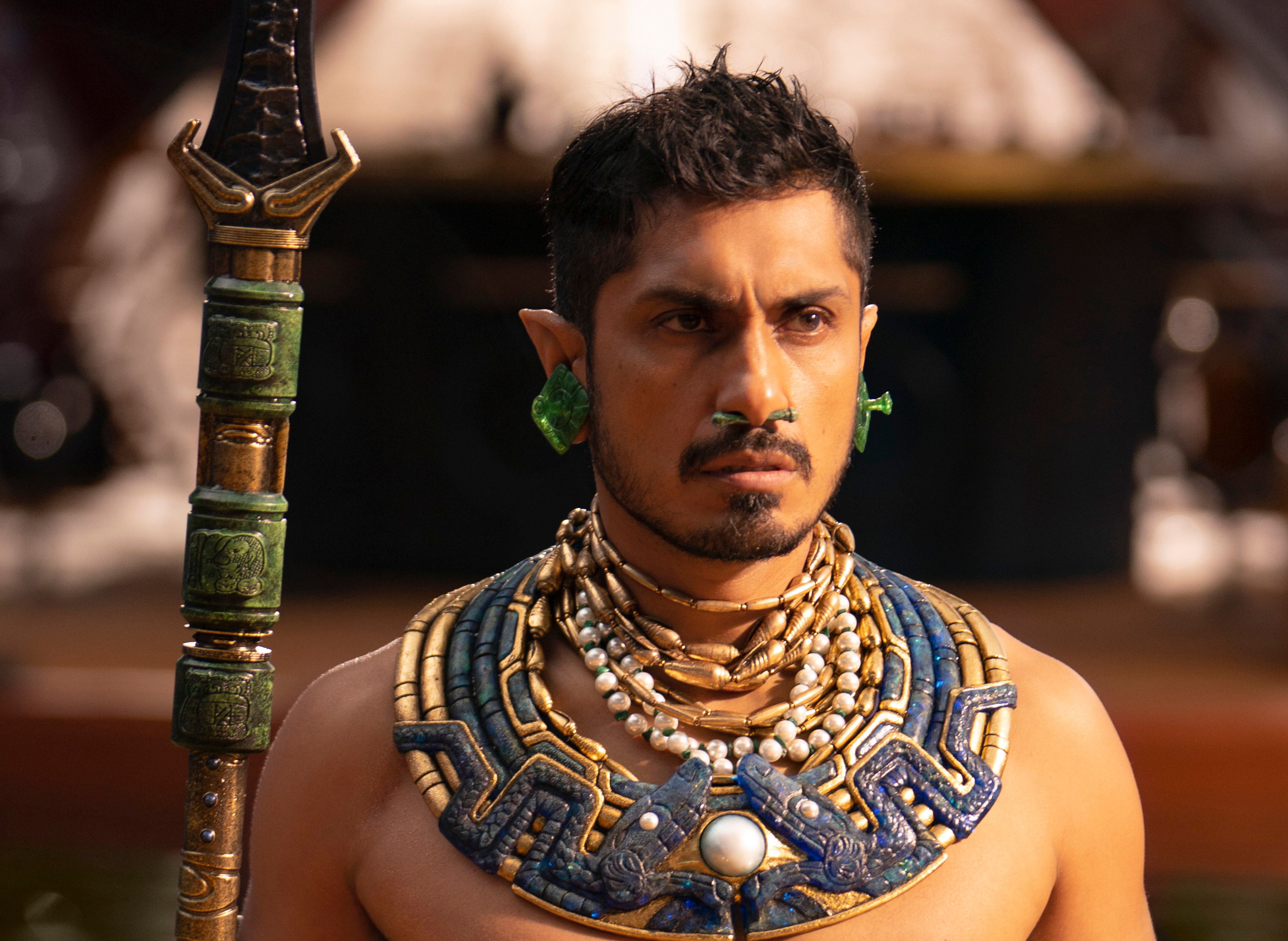
Tenoch Huerta Mejía as Namor in Marvel Studios’ ‘Black Panther: Wakanda Forever’. Image: courtesy of Marvel Studios.
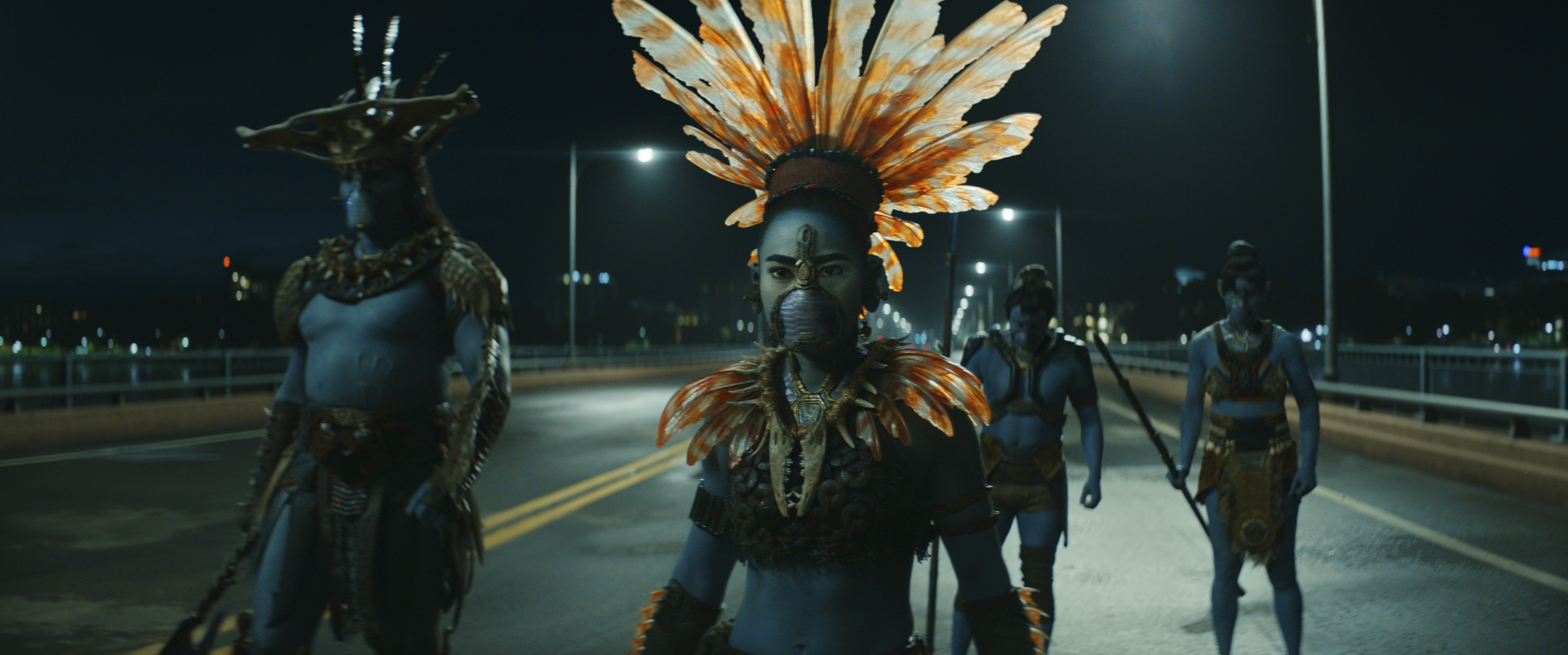
(L-R): Alex Livinalli as Attuma and Mabel Cadena as Namora in Marvel Studios’ ‘Black Panther: Wakanda Forever’. Image: courtesy of Marvel Studios.
Coogler makes an incredibly inspired choice here to rework Namor’s classic 1940s comic-book origins from its Grecian literature roots in the fabled lost kingdom of Atlantis (to differentiate him from DC’s Aquaman) and seeing the hugely underrepresented Mayan culture on-screen is a joy. That being said, the introduction of Talokan, as beautifully shot as it is, is handled as reverently as Wakanda was in the first film. Wakanda Forever is filled to the brim with gorgeous visuals and eye-popping production design, coupled with a fantastic score once again by returning Oscar-winning composer Ludwig Göransson, but the wavery underwater architecture and society of Talokan don’t always hit with quite the same oomph as our first glimpses of Wakanda did.
There are also a few plot strands that feel a little bit clumsy, the most noticeable surrounding the introduction of Michaela Cole as the Dora Milaje soldier Aneka and Dominique Thorne as young tech prodigy Riri Williams. For the former, there is a rising actress playing a fan-favourite role from the comics, but she’s barely in the movie, with her most famous comic book arc not only shoved into proceedings unnecessarily but then also almost entirely co-opted by Gurira’s Okoye.
As for Williams’s Riri, she’s soon to be getting her own Disney+ series, with Wakanda Forever essentially serving as her origin story before she eventually becomes the armoured hero Ironheart. Here, it’s one of her inventions that brings her to the attention of Namor, making her a quasi-Macguffin for the early part of the film, with Shuri thrown into conflict with Talokan by choosing to protect Riri from the undersea nation’s machinations. And there’s nothing wrong with that origin story or Thorne’s attitude-packed performance – she has a great rapport with Shuri – but the narrative reason for Riri’s involvement becomes tenuous when one thinks about it longer than a few minutes.
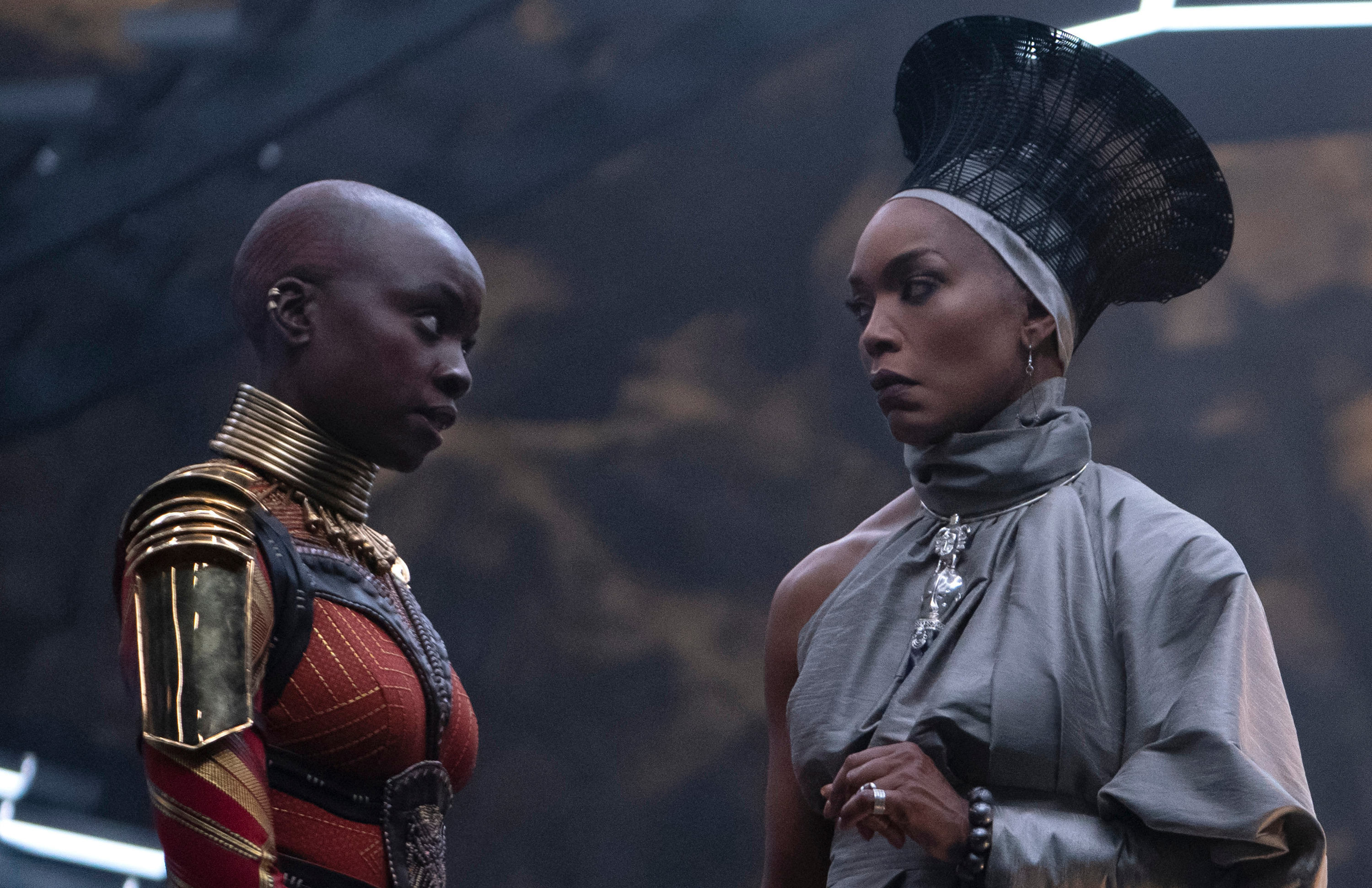
(L-R): Danai Gurira as Okoye and Angela Bassett as Ramonda in Marvel Studios’ ‘Black Panther: Wakanda Forever’. Image: courtesy of Marvel Studios.
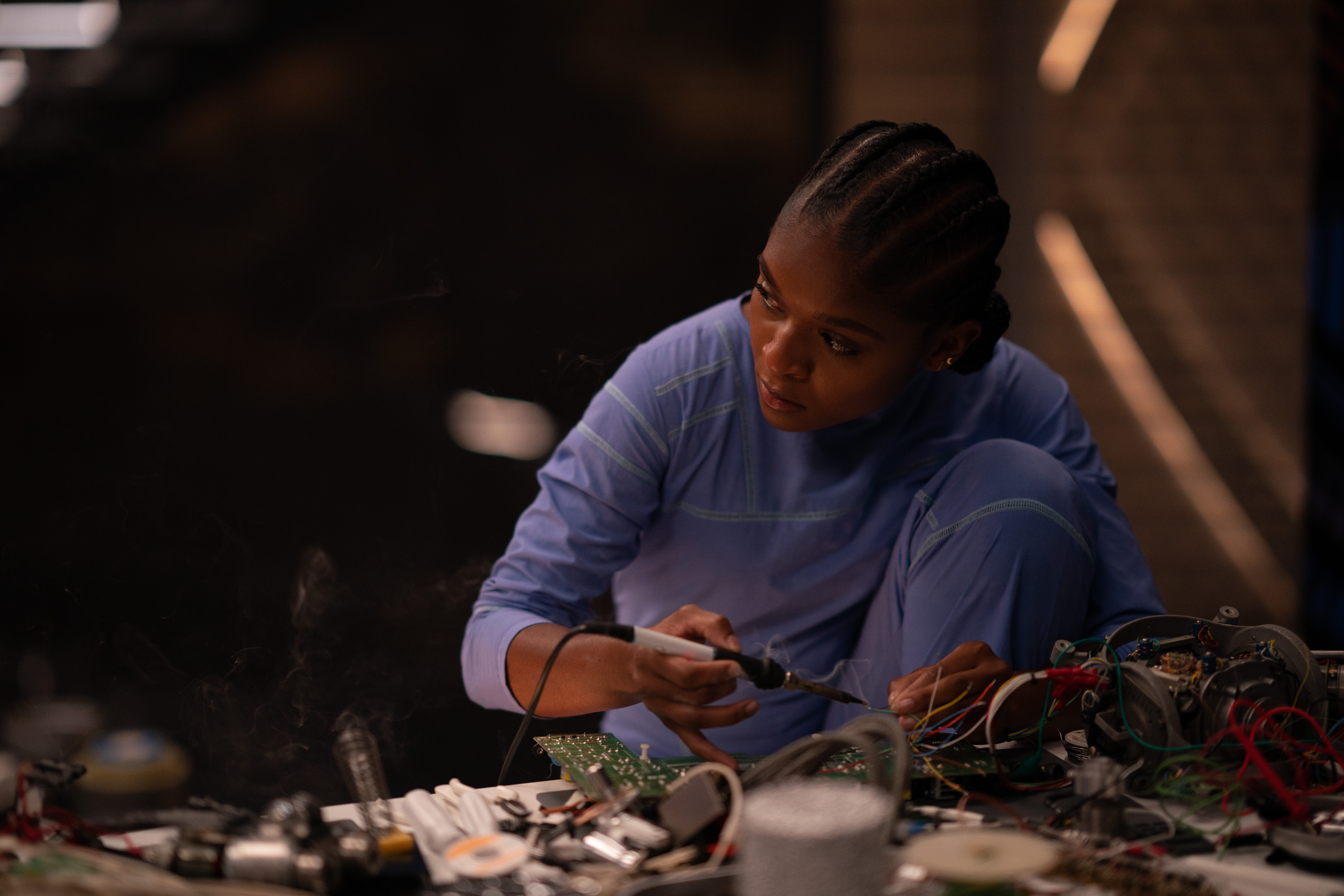
Dominique Thorne as Riri Williams in Marvel Studios’ ‘Black Panther: Wakanda Forever’. Image: courtesy of Marvel Studios.
Just as tenuous is the inclusion of some action beats. While Coogler mostly shoots these with a deft hand, a few of these Marvel-mandated action set pieces feel unnecessary and not memorable, that feeling exacerbated because the rest of the film’s human drama punches harder than these actual punches. That isn’t to say there aren’t “wow” moments. The Talokanii warriors in action, flipping into battle off the backs of giant marine animals with their water-based weapons and tech, are a sight to behold. The Dora Milaje being ‘badasses’, and the film’s final 1v1 throwdown between Namor and a new Black Panther – indeed, there’s a new character under the mask; without spoiling their identity here – are especially thrilling improvements over the previous film’s soulless CG rubber-puppet fight climax.
But, weird as it is to say it, pew-pew explodey action is not why one should see this Marvel Comics superhero movie. Whether intentionally or not, by mirroring the Black Panther’s ability to absorb and store energy before releasing it in an explosive shockwave, Coogler and his cast have managed to internalise the grief of losing a dear friend and then exploded that onto the screen in hugely moving character beats that elevate everything around them, overcoming its own faults and some impossible odds along the way, to give us some of the best Marvel fare we’ve had recently. That is superhero filmmaking. DM/ML
This story was first published on Pfangirl.com
Watch Black Panther: Wakanda Forever on the big screen from 11 November.
Visit Daily Maverick’s home page for more news, analysis and investigations

















 Become an Insider
Become an Insider
Comments - Please login in order to comment.